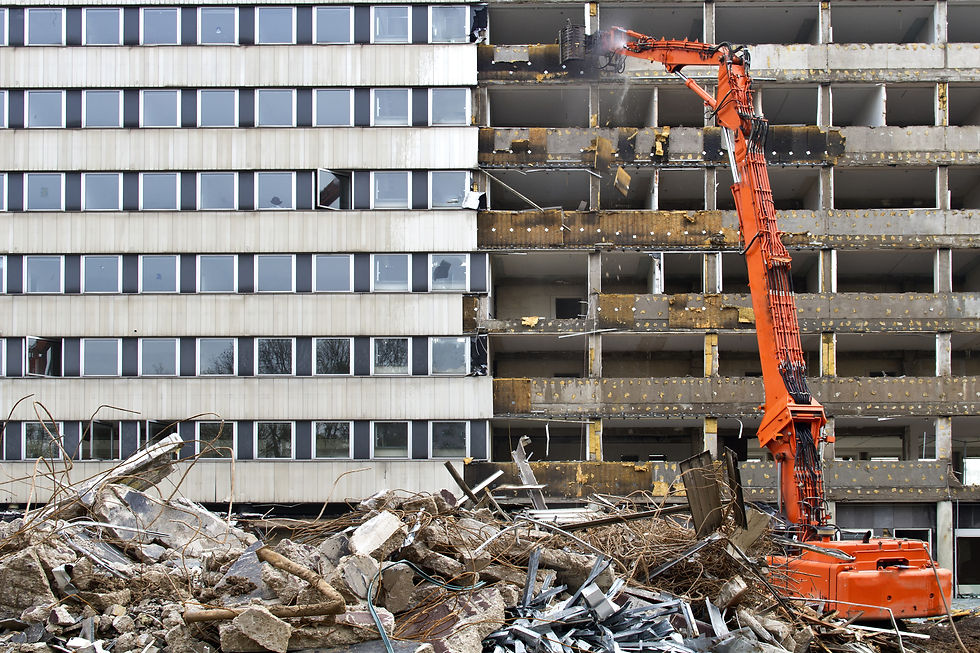The circular economy and construction - Part B
- Duncan Cartlidge

- Sep 22, 2022
- 2 min read

Sustainable Buildings Market Study
In part A of this blog the question was asked; just how feasible is a large scale move away from the linear model currently used to a circular model for the construction industry?Ramboll’s biennial Sustainable Buildings Market study 2021(i) reveals insights from architects, developers, contractors and investors across the Nordics, Germany & UK
90% of respondents believe that sustainability is an important part of a business strategy.
However, barriers to adopting a more sustainable approach include; lack of financial incentives (57%),lack of technical solutions (36%) and lack of technical knowledge (35%).
Surprisingly, 41% of respondents didn’t know how much higher a rental yield can be commanded for a sustainable building and 37% didn’t know how much higher sustainable property values will be.
Life Cycle Thinking, Health & Wellbeing and Carbon Neutrality were identified as the three most important trends, at 46%, 59% and 56% respectively.
'Client, tenant or other stakeholder requirement’, ‘Enhancement of building performance’ and ‘Improved quality’ were the most important drivers for using environmental certification schemes.
Whilst the findings show that sustainable buildings are becoming more mainstream, it also confirms a lack of clarity on the costs and benefits of sustainable buildings. When asked if sustainable buildings are a good investment, close to 50% of all respondents have little or no insight if sustainable buildings cost more to build, if they have reduced operational cost or if they trade at a premium.
Currently, much of the reclamation industry is set up to meet the needs of small to medium size builders. For larger projects there is no established supply chain that can reliably supply builders with large quantities of reclaimed materials. Therefore, to undertake signature projects requiring large quantities of reclaimed materials inevitably results in long lead-ins and perhaps the establishment of storage for reclaimed materials as they become available.
Issues such as the circular economy and many other challenges facing construction are discussed in detail in the 5th Edition of New Aspects of Quantity Surveying to be published in Spring 2023.
Duncan Cartlidge
(i) Ramboll Buildings, (2021), Ramboll’s Sustainable Buildings Market Study 2021



Comments